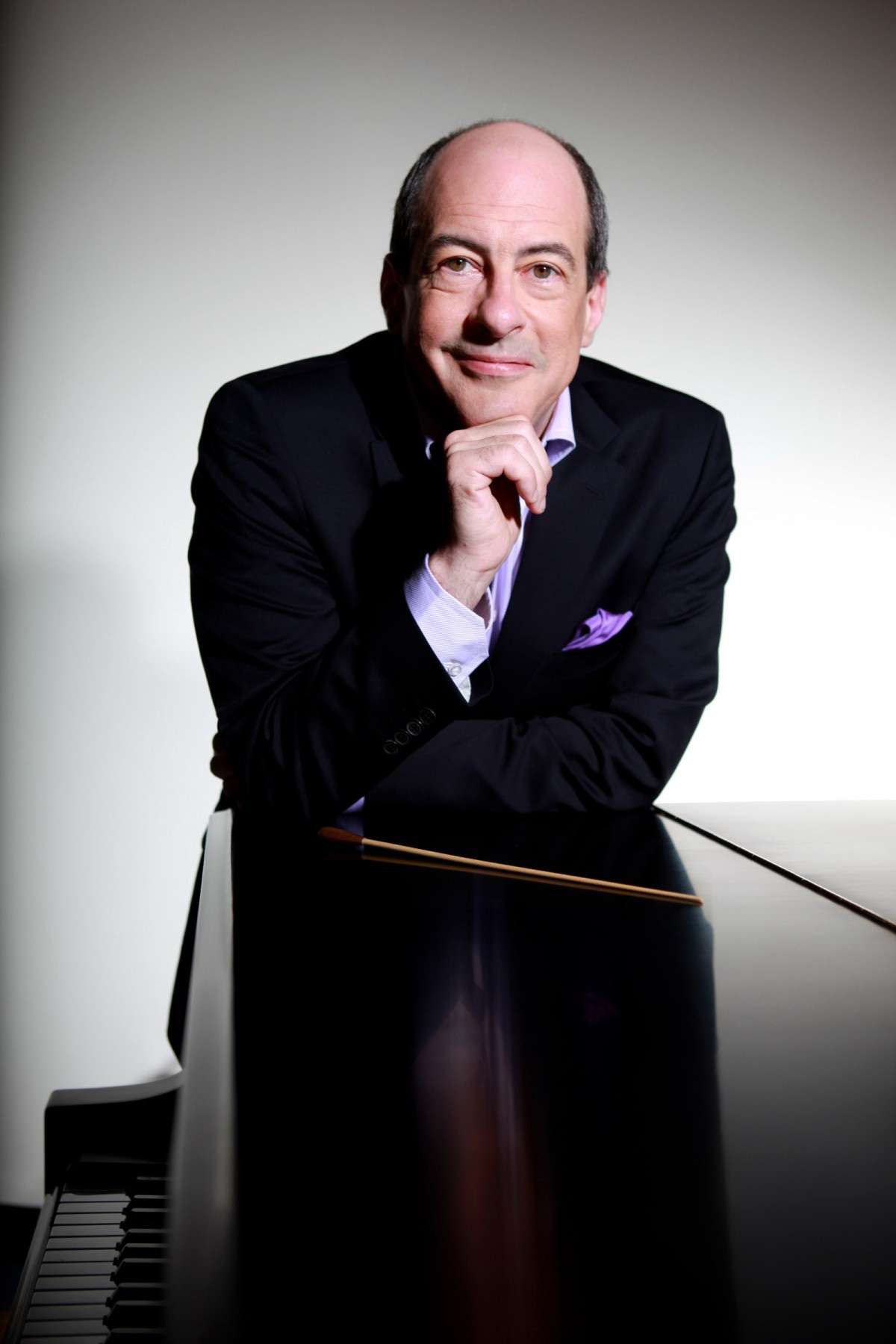|
Back
Spano and Bronfman set Miami afire Miami
Knight Concert Hall
01/05/2013 -
Pyotr Ilyich Tchaikovsky: Francesca da Rimini, Op. 32
Béla Bartók: Piano Concerto No. 2, Sz. 95, BB 101
Ludwig van Beethoven: Symphony No. 7 in A major, Op. 92
Yefim Bronfman (piano)
New World Symphony, Robert Spano (conductor)

R. Spano (Courtesy of NWS)
To best appreciate any Bartók piano concerto, it probably makes sense to listen to a recording of all three in order to hear his maturation. The First is pretty harsh going and the last is certainly more traditionally emotional. The Second is a sort of hybrid. Now this approach isn't practical for most people as Bartók's work really isn't accessible enough to expect music lovers to make such an effort. But some of the greatest pianists have devoted much of their careers to mastering him. It can be interesting to try and understand.
To non-musicians they technically sound horribly difficult. Because the music lacks sentiment and has dissonance, often we think this implies atonality. But that isn't the case with Bartók. And though his music might not seem particularly warm, it is likely that one's imagination will be greatly stimulated.
With Yefim Bronfman at the keyboard, we are assured of the wild ride that Béla intended. It starts out relatively cheerful with some horns and winds giving a fanfare. But once the piano takes the lead, the energy goes into places that are not always safe. The music is harsh yet strangely melodic. It has a Bach two-part invention feel, as if there were two pianos; could one human being be capable of all that music? The speed is relentless and Bronfman had to maintain a staggering pace which requires a giant of a musician. With a lesser talent, a piece like this can become monotonous, here it was impossible to lose one's concentration. Bronfman wouldn't allow it.
The first movement ends with a huge positive declamation and is immediately countered with music of extremely slow intensity. The strings walk a very narrow precipice and if anyone is even a little off balance, there is a risk that the whole string section might collapse. The piano comes in with a delicacy as pronounced as the first movement's ferocity. Then it returns to another thrilling joyride reverting to the intensity of the beginning. The last movement might make one think of watching a gangster movie with a gripping chase scene but this scenario ends with the happy theme from the opening of the first movement. The symmetry is precise and immensely satisfying.
After Bronfman wore us out with something rugged, he returned to give an encore: Liszt's Grand Etude of Paganini, No. 2 emphasized by massaging arpeggios; another gripping though not austere adventure.
The evening started with Tchaikovsky's gloriously dramatic symphonic fantasy, Francesca da Rimini. Tchaikovsky always finds dance rhythms, here they are dark and richly adorned. Within the commanding strings come bursts of sensitive beauty. Here, especially noteworthy were the clarinet of David Lemelin and the flute of Melanie Lançon.
This program was offered the previous night at the New World Center though not with the conclusion given here: Beethoven's Seventh Symphony. This interpretation was particularly insightful since Beethoven's delicacy, as well as his passion, got full attention. The famous second movement (Allegretto) was played with unusual sensitivity and understatement making it all the more powerful. The most memorable part of the Beethoven, however, was the last movement (Allegro con brio) which demonstrated great power, speed and precision yet was never blustering; we concluded the evening with this tremendously joyful dance.
And though Mr. Bronfman was the program's star, the evening belonged to conductor Robert Spano who effortlessly found the proper moods not only for each piece but for each of the varied movements within them, encouraging the audience to hear elements often ignored. Come back to Miami whenever you are free, Mr. Spano. But from your schedule, it looks as if that chance isn't going to be as common as we might hope.
Jeff Haller
|